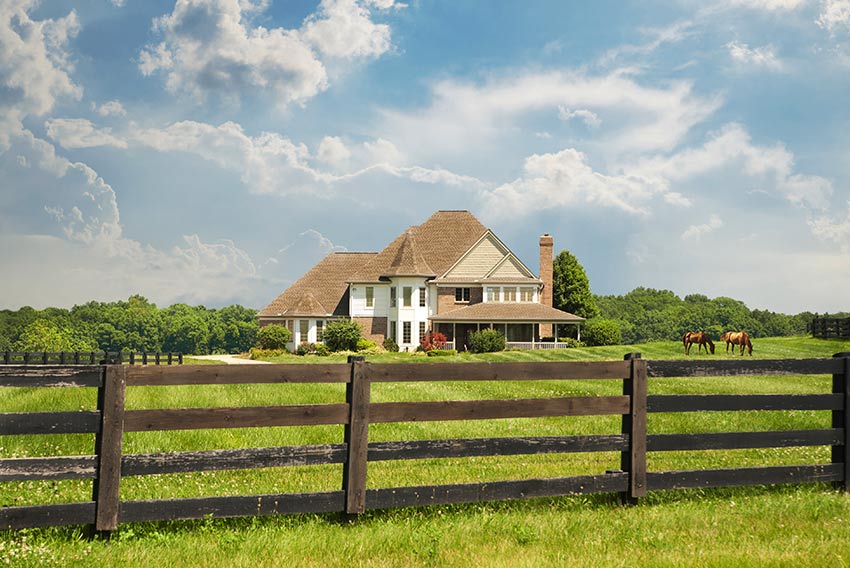Whether you are buying or selling an acreage, there are many aspects of that transaction that are not common to an intown residential sale. Having an agent that knows and understands all the unique aspects of an acreage transaction can help you navigate this with a minimum of problems during or after the closing.
Tips for buying or selling an acreage property
Septic systems: Most acreages and some in-town homes are served by a private sewage system known as a septic system. In Iowa, these systems are required to be inspected prior to the transfer of the property to determine if the system is an approved system and if it is in proper working condition. It is important to know who is responsible for providing and paying for this inspection and making any repairs or replacement of the system. We have a network of Certified Inspectors and Licensed Installers we can recommend to help both buyers and sellers work through this process.
Wells: Water is supplied to most acreages by either a private well or rural water provider in some cases. Wells come in all types, sizes, and depths. Knowledge of all these systems is required to maintain a safe drinking water supply. Often the well may be located on an adjoining property and recorded easements are needed to provide the owner with access to the well for maintenance and repairs. Also, inspections of the well may be needed to determine that the water supply is sufficient to maintain a home including outside water usage.
Water tests: A water test should be done to ensure that the source of water to the property is safe to drink. There are various types of water tests available. An experienced acreage Realtor can help you determine the best test based on your water usage.
Ingress & Egress Easements: Easements for farmers to cross a property to access their fields is a common occurrence, but sometimes is an annoyance to buyers of a property. In many cases they are not recorded with the county and therefore, are not truly an “Easement” but actually a gentleman’s agreement to allow access. Many times, the need for such an easement can be eliminated by both parties mutual agreeing to relocate this access. In either case, these issues should be researched prior to making an offer on a property.
Propane & Propane tanks: Propane is a gas that many rural properties use to heat homes, provide hot water and run fireplaces. Propane tanks can either be owned or rented, and the remaining gas in the tank at closing time is owned by the seller. Prior to making an offer, buyers need to know the ownership status of the tank and a determination needs to be made as to who will pay for the remaining propane in it at closing.
Shared fence laws: In many rural areas, fences that separate two adjoining properties are considered owned by both property owners and subsequently must be maintained by both parties whether one or both are using it. In Iowa this is referred to as the “Right Hand Fence Law” and refers to the portion of the fence that is the responsibility of that landowner.
Gross Acres vs. Net Acres: In rural areas, landowners own the land to the middle of the road that runs along a property; however real estate taxes are not owed on the portion that is included in the road right of way.
Surveys: Many rural acreages or rural building lots have been surveyed from adjoining farms that were once owned by the same family. There are specific County guidelines that need to be met to split a parcel of land or acreage from a larger parcel of farmland and having knowledge of these guidelines and the process to accomplish these objectives is something agents not working in acreages regularly often do not know.
Forest Reserve program: The Forest Reserve program is a State Sponsored but County run tax credit plan where a property owner may defer paying property taxes on a large part of the timbered land owned by them. The acres being deferred need to meet specific guidelines on the density of mature timber, limited harvesting of mature timber not to exceed density guidelines, and an agreement to maintain the timber in a similar condition. There are two ways for Counties to calculate the tax savings so knowing how a specific county does this requires expertise in this field.
Overall, there are many aspects to buying or selling an acreage property. This is not a complete list by any means. So, having a knowledgeable agent working for you can save you many headaches down the road, especially when you go to sell your property.
Written by: Byron Menke, Broker & Auctioneer, Licensed in Iowa and Nebraska, Menke Auction & Realty, 124 E. Main St, Treynor, IA, 51575, 712-487-3542, Byron@MenkeAuction.com


